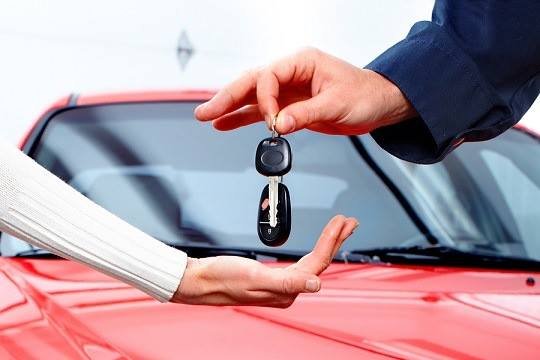Do I Need A New Vehicle?
 Picture this: you’re parked in a stop light, humming the latest hits, when your car suddenly whinnies and stills to a stop. You’re not an automobile expert, but this feels bad… this feels expensive. You might be faced with the all-consuming question, “Do I need a new vehicle” We’ll give you the pros and cons; and let you decide which step to take.
Picture this: you’re parked in a stop light, humming the latest hits, when your car suddenly whinnies and stills to a stop. You’re not an automobile expert, but this feels bad… this feels expensive. You might be faced with the all-consuming question, “Do I need a new vehicle” We’ll give you the pros and cons; and let you decide which step to take.
Money
Your first step should be to compare the fuel economy of your current car with that of the vehicle you are considering to purchase. Fuel economy of a vehicle is the relationship between distance traveled and the amount of gas consumed by your ride.
Get An Estimate
As your car gets older, the repair costs increase as well. So take your car to a mechanic (not a dealer — they almost always overcharge for repairs) and get an estimate of the repairs. Check if there is a way to make it cheaper. Can the transmission be fixed instead of changed? Can any old parts be salvaged? What other pricey repairs will you have to make in the future? Do the repairs exceed the cost of purchasing a new vehicle?
If your bills exceed a years’ worth of car payments, you can consider purchasing a new ride.
Trade-ins
When most people buy a new vehicle, they’re replacing an old one. If this sounds like you, you should decide whether you want to trade your old car at the dealership or sell it on your own. Selling it on your own means that you’ll have to arrange for test drives, ownership transfer, and complete all the paperwork yourself. If you take it back to the dealership, you might not get nearly as much as you would from a private buyer; but you will get the money hassle free.
Buy used
Statistics show that a new vehicle loses 15-25% of its value every consecutive year. If we assume a 20% depreciation, and you buy a car for $40,000, it might be worth only 32,000 in 2 years. On the other hand, if you buy used car for $20,000; you would lose only $4000 by the second year. Keeping these calculations in mind, it might make sense for you to invest in a used car.
Safety
The safety basics your car must have include airbags, electronic stability control, and forward-collision warnings. You don’t have to spend big bucks on a blind-spot monitoring or automatic braking, but if your car is lacking a few safety features; you should probably consider the safest car that fits your budget.
Conclusion
When you’ve decided that it’s time to replace your ride, spend some time going through your monetary situation rationally. Always remember to take in account the operating costs of your vehicle; and say goodbye to that new-car envy!
